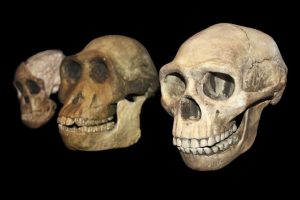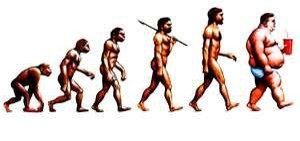
I often begin my lectures with the question “What mammal eating its species appropriate diet gets tooth decay?” The answer of course is none. Evolution has managed to equip every animal with its proper set of teeth for eating what it should eat. Yet this seems counter intuitive to many people as tooth decay is endemic in modern societies worldwide. If this sounds so to you please check out Professor Peter Ungar’s terrific book on primate teeth, evolution, and function based on his decades long observations. The obvious conclusion is that as a species we have lost our way and need to backtrack in time a little bit.
This article is a step in the right direction. While I have read about the exploits and observations of explorer Donald MacMillan, I have written about Dr. Weston Price and his observations here. He details his observations of cultures that either consumed no or only fermented cereal grains and those that ate a modern diet. In fact he referred to flour, sugar, and rice as the, “displacing foods of modern commerce.” Some of his most powerful observations were of South Pacific Islanders. Those that had contact with commerce had horrible teeth and those that did not had perfect dentitions. It is well documented with photos as well. Unfortunately, his book Nutrition and Physical Degradation was published in 1939. Not a very good time to be publishing unless you were working of rockets or aerodynamics.
What does this mean for us today? If you want to have healthy teeth and don’t have the time to study human evolution just take your cues from a time before civilization. Natural meats, seafood, fruit in season and green leafy vegetables should be where you start. Fats have been receiving a bad rap as causing obesity and heart disease but a deep dive into this subject exposes this as a myth. The problem is not fat, it is CHRONIC INFLAMMATION. Fats are the least inflammatory food there are. Excess carbohydrates consumption cause massive insulin releases in an attempt to control sugar levels (insulin is pro-inflammatory hormone) and this causes protein glycation. This glycation will cause the inflammation.
The dental profession has done a great job of getting everyone to understand that refined sugar is not good for you. We have utterly failed to teach people to understand that starches (especially cereal grains) also cause insulin surges and tooth decay. Unless you ferment them using a traditional method avoid all grains including rice and oatmeal.
The problem with grains is multifactorial. As mentioned the spike in blood sugar causes insulin release. This causes the sugars to be transported into cells. Excess is turned into fat. Hence the obesity epidemic we are currently experiencing. Another problem is they contain a substance called phytic acid. Phytic acid blocks (scientists say chelate) the absorption of minerals such as magnesium and iron. Did you ever wonder why bread comes fortified with things like iron? Now you know. You did not evolve from people who ate this so your body does not do a good job of handling it. This is where natural fermentation is useful. It destroys the phytic acids.
It also bears reminding that if excess starch consumption is bad for one system of the body it is most likely bad for others. For example the average adult has roughly two gallons of blood. In that blood at rest is dissolved two teaspoons of sugar. Do you know what it is called when your body maintains three tablespoons of sugar? It’s called type II diabetes. That’s how tight your body regulates circulating sugar. Lastly, lost on many is that HUMANS HAVE NO OBLIGATE NEED to eat sugar. Your body has a process, called gluconeogenesis that will make all you need. That’s right you have an obligate need for certain fats and amino acids (protein) but none for carbohydrate.
The changes in diet that I suggest may sound unusual but I have been doing them for over eight years and have been in just about perfect health the entire time. Not even a cold. So if you want to be healthy and never have to deal with decayed teeth or other maladies learn about where humans came from, our ancestral diet and what is and what is not species appropriate.


